The Somme: A soldier's illustrated journal of the horror of war
- Published
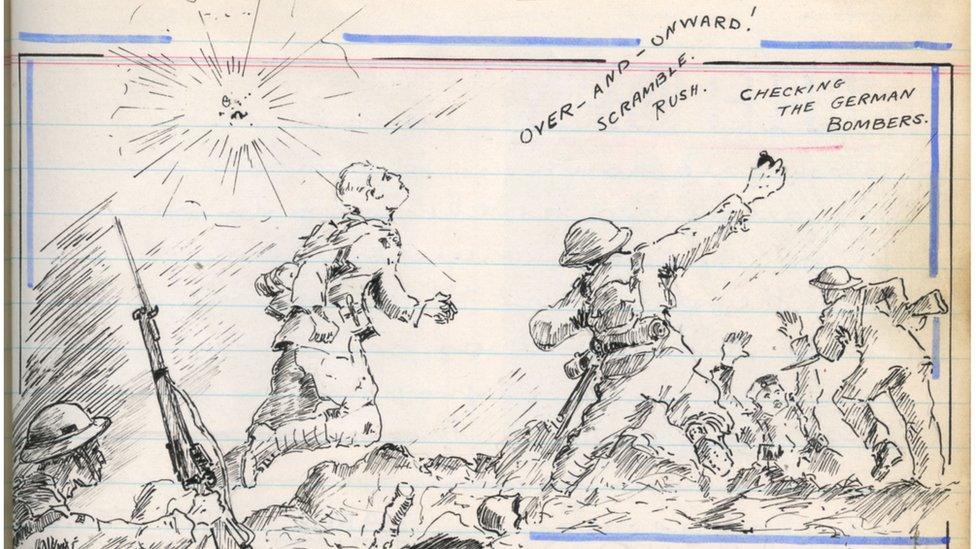
Jim Maultsaid's diaries include many comic-book style sketches of battle
Jim Maultsaid, like tens of thousands of others, was wounded on the first day of the Battle of the Somme.
The private in the 36th Ulster Division kept a diary of his experiences throughout the war.
After the war, this small pocket book and sketch books formed the basis of a series extraordinary journals.
These included notes and descriptions of battle as well as dramatic comic-book style illustrations.
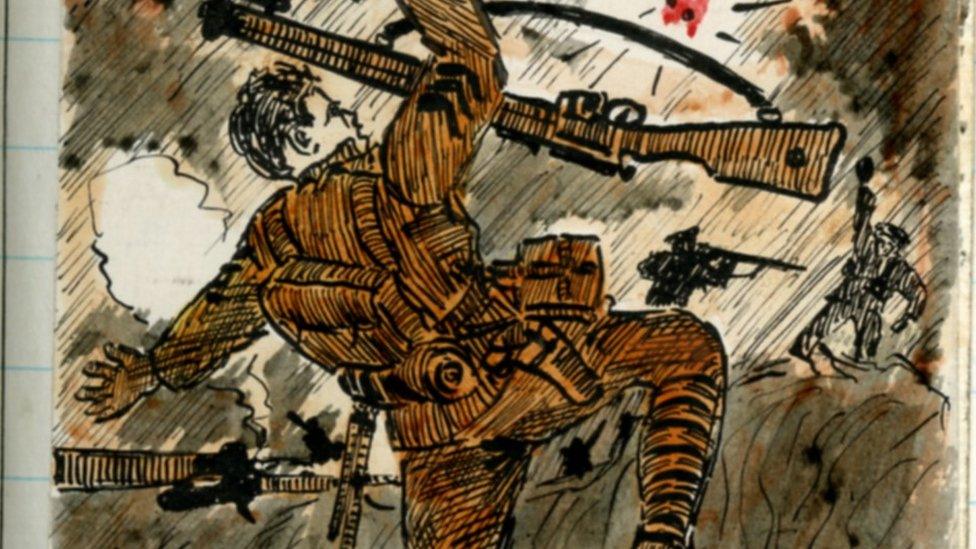
Many of Jim Maultsaid's drawings capture the horror of trench warfare
His notebooks are currently part of an exhibition in the Ulster Museum in Belfast.
Jim Maultsaid dedicated his journals, the first of which was entitled 'Star Shell Reflections', to his comrades.
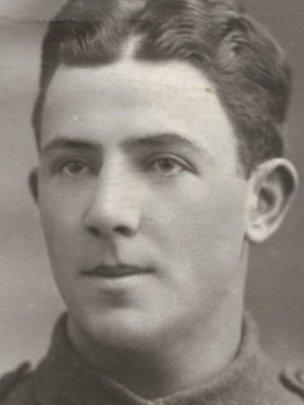
Jim Maultsaid eventually trained as an officer
"Star Shell Reflections," he wrote, "is dedicated to those chums of mine who soldiered down the years with me side by side.
"Many whom I mentioned in the book sleep their last long sleep on soil that is foreign to us - yet for evermore a little part of England."
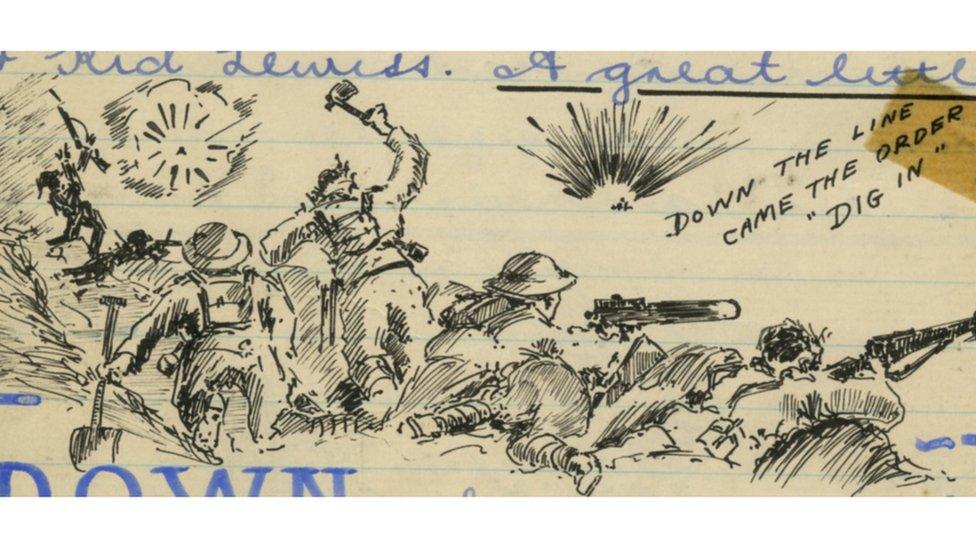
Jim Maultsaid's granddaughter believes his journals may have been a way of coping with his wartime experiences
Jim Maultsaid was an American citizen, born in Pennsylvania, USA in 1893 to Irish parents.
The family later returned to live in Letterkenny in Donegal, now in the Republic of Ireland.
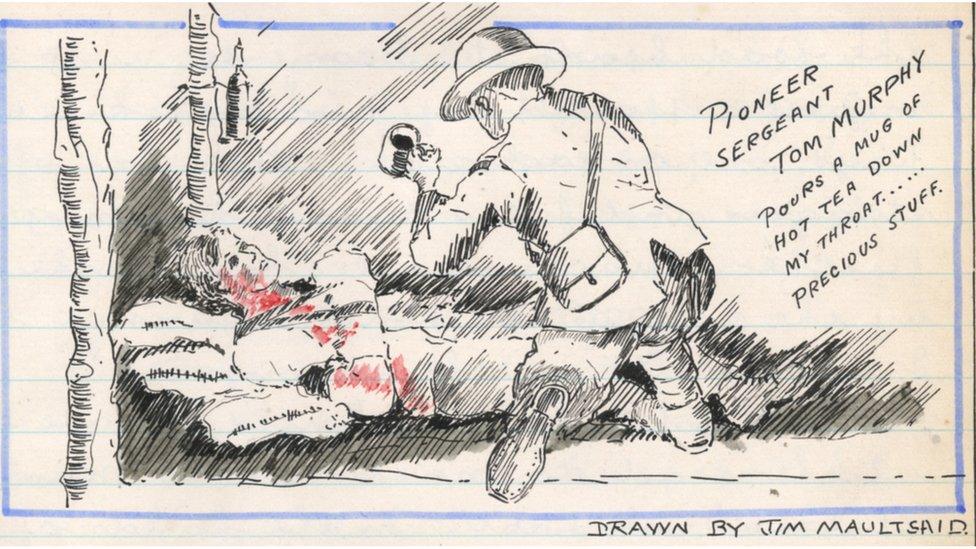
Many of Jim Maultsaid's illustrations are accompanied by speech or notes
He had first joined the Young Citizen Volunteers (a unionist militia linked to the UVF) before joining the 14th Irish Rifles.
His granddaughter, Newtownabbey woman Barbara McClune, has published his journals in two volumes.
"He was a very quiet man, a very gentle type of man," she recalls.
Barbara does not remember her grandfather ever speaking of this wartime experiences: "I think maybe doing the diaries was his way of coping with what happened and what he went through."
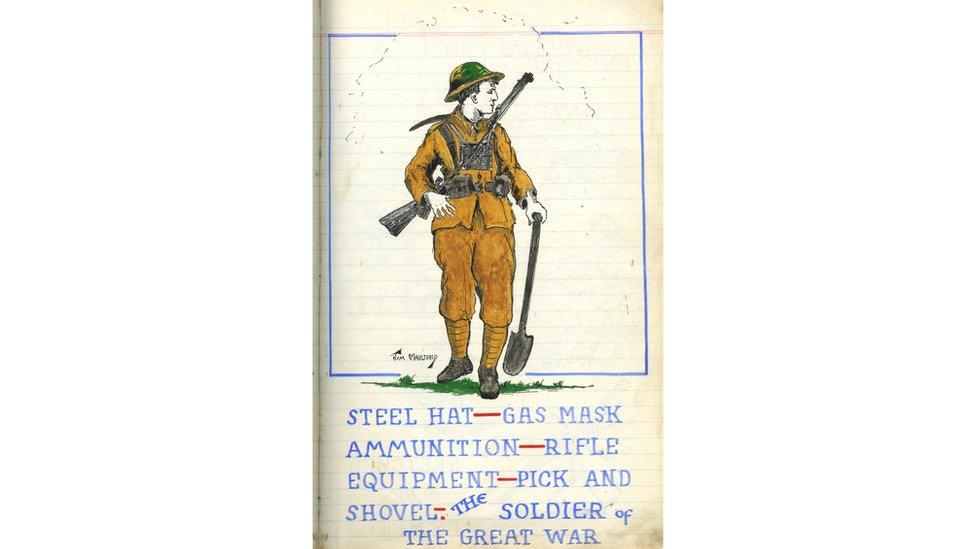
Some of Jim Maultsaid's work feature diagrams of World War One equipment
Jim Maultsaid was badly wounded on the first day of the Somme, shot through the right shoulder.
"I think he lay in no man's land for a while and then he was lucky enough to get rescued," explained Barbara.
"He was in hospital up until September, after that he came back to Belfast.
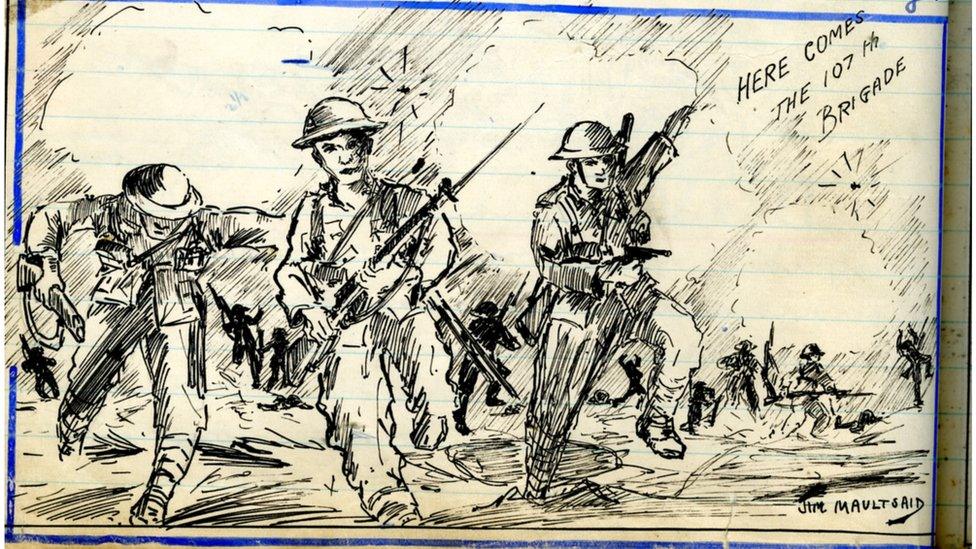
Many of Jim Maultsaid's illustrations have a graphic novel quality
"He was in Newcastle, County Down for a while, training cadets, from there he went to Cambridge to officer training, from there he got a commission to the Chinese Labour Corps.
"He actually didn't leave the war until early 1920."
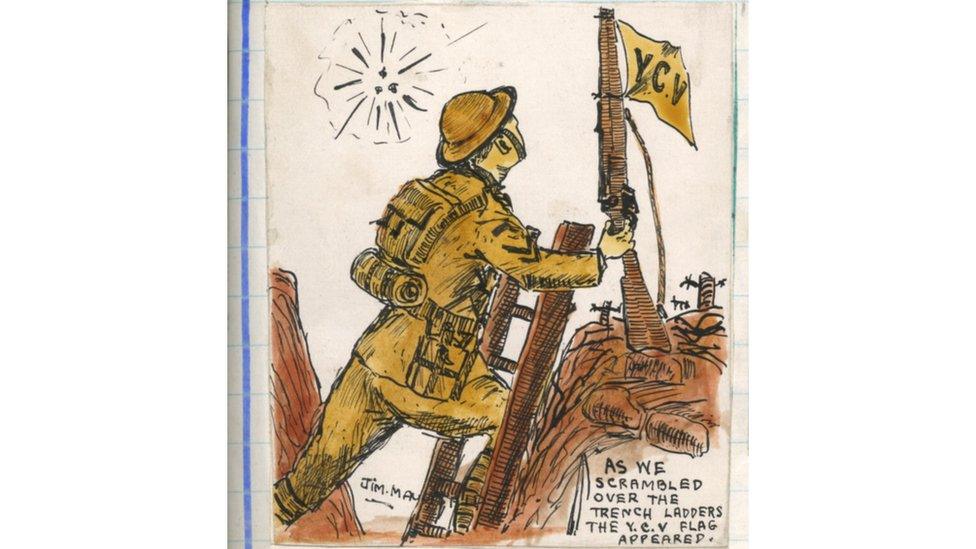
Jim Maultsaid originally joined the unionist Young Citizen Volunter militia before joining the army
Like many other veterans, war had taken his toll on the young soldier.
"After the war, he did suffer from a lot of night tremors and had trouble sleeping for a long time," explained Barbara.
"It was post-traumatic stress apparently, which wasn't recognised then.
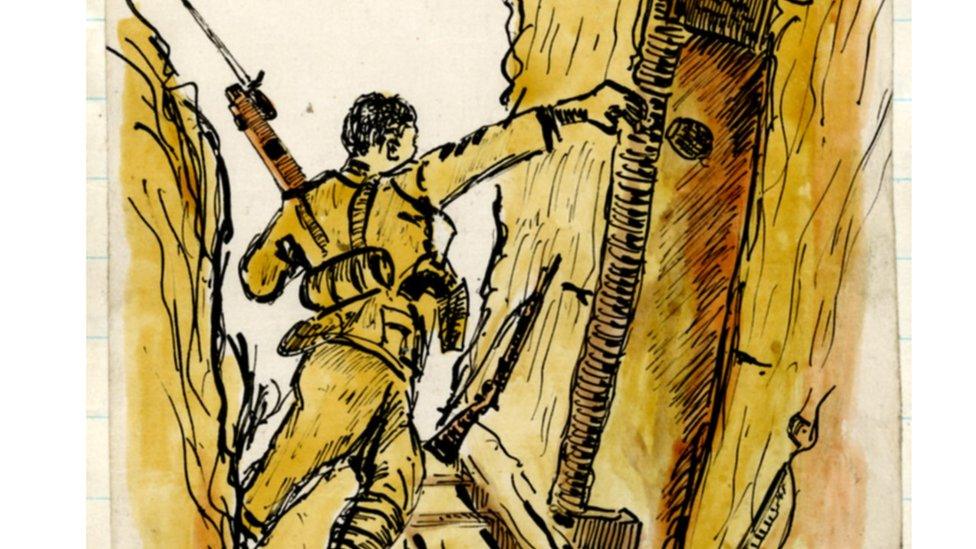
The dramatic action of trench warfare captured by Jim Maultsaid's journals
"There are five large diaries, he worked on them for years.
"I think it was a therapeutic thing for him after the war, he didn't talk about it but he wrote these diaries," his granddaughter added.